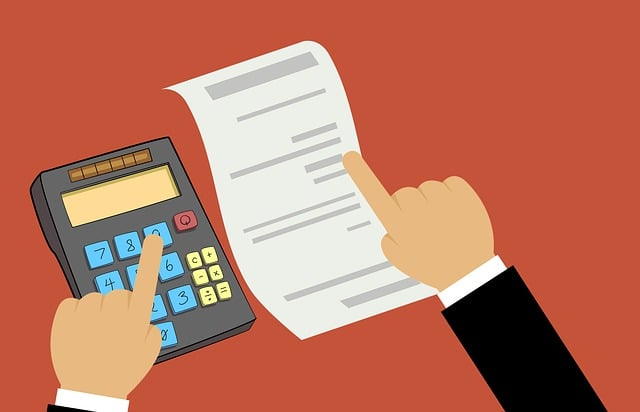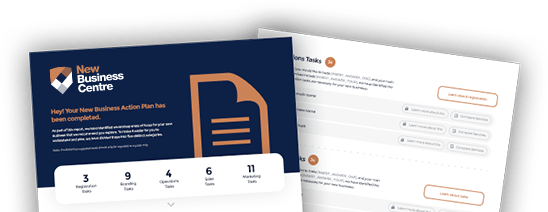
Starting a business is an exciting venture that can bring a lot of rewards. However, when starting a business, it’s important to establish separate finances to ensure the success of your venture. Mixing personal and business finances can result in financial stress, confusion, and even legal problems.
Having separate finances will not only help you manage your cash flow and budget better, but it will also give your business a more professional appearance. Separating your personal and business finances can be a simple and manageable process with the right mindset and proper planning. This article will explore some best practices to separate your business and personal finances.
Types of Business Finances
Business finance refers to the funds and resources a business uses to operate, grow, and manage its financial activities. Essentially, it’s the money that flows in and out of your business, including the cash you use to purchase inventory, pay your bills, and invest in new opportunities.
There are different types of business finance that you can use to support your business goals. These include debt financing, equity financing, and other forms of financing.
Debt financing involves borrowing money from a lender, such as a bank or credit union, and repaying it over time with interest. This type of financing is often used to cover short-term expenses or to invest in a business opportunity that has the potential to generate revenue in the future. Examples of debt financing include business loans, lines of credit, and credit cards.
Equity financing involves raising funds by selling a share of ownership in your business. This type of financing is often used to support long-term growth or to fund large projects. Examples of equity financing include venture capital, angel investing, and crowdfunding.
Other forms of financing include grants, government loans, and tax incentives. These options are less common, but they can be a valuable source of funding for certain types of businesses or projects.
Regardless of your financing type, keeping your personal and business finances separate is important.
Why Should Separate Personal and Business Expenses

As a new business owner, it’s important to understand that your business is a separate entity from yourself and your personal finances. While it may seem obvious, there are several reasons why it’s crucial to keep your personal and business finances separate. Here are some important reasons to consider separating your finances as a business owner.
Legal Liability
As a business owner, you need to take precautions to protect your personal assets from business debts and legal issues. If your business structure is a sole proprietorship, you are responsible for all business liabilities, and creditors can sue you personally for business debts. However, by incorporating or forming a limited liability company (LLC), you can separate your personal finances from the business, which protects your personal assets.
Business Credit History
Establishing separate accounts for your business can help build your business credit history, which is critical in accessing financing. Lenders will evaluate your personal credit history and business credit score to determine whether to approve your loan application. By keeping separate accounts, you can establish a good credit history for your business and avoid damaging your personal credit score.
Streamlined Accounting
Separating your business and personal finances is essential in managing your cash flow and bookkeeping. A separate business account will help you keep track of your business income, expenses, and cash flow, making it easier to monitor your business performance. By having separate accounts, you can maintain a clear picture of your company’s financial health and avoid confusion in managing your personal finances.
Better Recordkeeping
By keeping separate accounts for your business, you will find it easier to maintain good financial records. This is especially important for tax purposes, where you need to report your business income and expenses separately. By having clear and accurate financial records, you can avoid the risk of IRS audits and ensure that you are paying the right amount of taxes.
Access to Business Account Features
Business accounts offer features tailored to the needs of businesses, such as online payment and invoicing capabilities, merchant services, and QuickBooks integration. By opening a business account, you can access these features and take advantage of the services offered to help grow your business.
Professional Image
Separating your personal and business finances helps establish a professional image for your company. Investors and customers will take you more seriously if they see that you have a dedicated business account. By applying for credit cards and checks in your business name, you’ll make it clear that you’re serious about your venture.
Having a separate business account also makes it easier to keep track of your expenses. When you’re using the same account for both business and personal purposes, it can be challenging to differentiate between the two. This can lead to errors in accounting and make it difficult to manage your finances effectively.
Save Time and Money
Another crucial reason to separate your personal and business finances is to save time and money. When everything is mixed together, it can be time-consuming to sort through your transactions and determine which expenses were for personal use and which were for the business.
Hiring an accountant can be expensive, but having a complete separation of finances means fewer billable hours. Using business accounting software is another option that can help you save money by providing options and guidance in maintaining your financial records.
Separating Personal and Business Finances
Now that you understand why separating business and personal finances is essential let’s discuss how to do it.
Open a Business Checking Account
Opening a business checking account is the first step to separating your personal and business finances. A business checking account will help you keep track of business income and expenses, making filing taxes and claim deductions easier. You should deposit all business revenue into the account and use it to pay expenses.
Use a Business Credit Card
A business credit card is an essential tool for separating business and personal expenses. Use the card to pay for business expenses only, and avoid using it for personal expenses. A business credit card can also help build your business credit score, which can be useful when applying for loans or lines of credit.
Keep Separate Personal Accounts
You should also have separate personal accounts to manage your personal finances. Having separate accounts helps you to avoid mixing personal and business funds. Use your personal bank account for personal expenses, such as rent, mortgage, or groceries.
Track Business Expenses
Track all business expenses separately from personal expenses. Keeping receipts, invoices, and bank statements of all business transactions is important. Tracking business expenses will help you claim tax deductions and provide an accurate financial record of your business.
Determine Business Structure
Determine the legal structure of your business. You may be personally responsible for any business debts depending on your business structure. To separate personal and business finances, it’s recommended to form a limited liability company (LLC). An LLC provides legal protection and pass-through taxation.
Pay Yourself a Salary
Pay yourself a salary from your business account, which will help separate your personal and business profits. This also helps to keep your personal finances separate from your business finances.
Educate Your Team
It’s important to communicate your financial policies and practices to your team to ensure everyone is on the same page. Educating your team about separating business and personal finances will also help to reduce confusion and ensure accurate record-keeping.
Wrapping Up
Separating business and personal finances is essential for any business owner. It may seem daunting, but the benefits far outweigh the effort required to start.
Following the tips outlined in this article, including hiring a certified personal accountant, opening a business bank account and credit card, and tracking shared expenses, you can separate your personal and business finances. It’s also important to maintain open communication with your team and ensure everyone is on the same page to avoid any confusion or mistakes.
Remember, your business is a separate legal entity from your personal finances. Separating your finances is critical to the success and longevity of your business. Don’t hesitate to seek professional advice if needed, and take the necessary steps to get started today. With the right mindset and tools in place, you can successfully separate your personal and business finances and take control of your financial future.
Create a new business plan with the help of the New Business Centre. We exist to help new businesses navigate the complex world of starting a new business. We have personally mentored and helped build over 500 businesses, from small trades to manufacturing, professional services, startups, and a lot more that have gone on to achieve great success. Sign up for free now!





